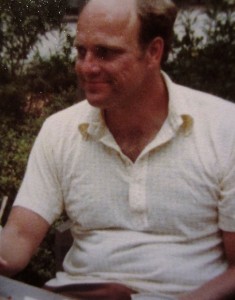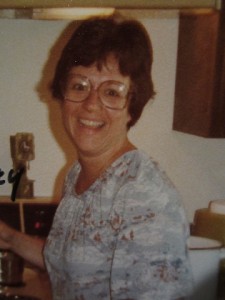I remember the first time I ever seriously considered the word “widow.” Of course I knew what it meant and defined it by the many elderly ladies I knew who were widows. But no definition of the word widow would be complete without its emotional component.
When my friend Carole lost her husband Reggie to melanoma cancer, the full force of the word began to register. After he died, I flew from Chicago to Asheville, North Carolina, to be with my good friend.
The day I arrived, she and I, along with her 7 children, drove to the funeral home to see Reggie one last time. His service was to take place the next day, so this was their final goodbye. It was a difficult hour, especially for the kids, but the room was filled with loving words and touches, a testimony to the good father and husband he was.
As we left the funeral home, Carole leaned over and whispered, “I’m not sure I’ll ever get used to the widow-word.”
And that’s the instant when its meaning came to life. This was my pal, a buddy through college years, teaching years, our weddings, and many babies. Her Reggie and my Nate were strong friends, and the future looked bright.
But a widow? How could we be a foursome without Reggie?
The widow-word ultimately settled in on Carole and she coped valiantly with it, but today, I no longer tag her that way. Though she’s still a widow, more so she is “my friend Carole.” She’s the same spunky person I’ve always known and is just as involved in the lives of others as she’s always been.
Now that Nate has been gone for 2½ years I can honestly say I’ve gotten used to the widow-word, too. In the beginning I hid behind it, craving time alone. Later, I worked to accept it. Eventually the widow-word wrapped itself around me like a cozy cloak as I gratefully accepted the help and love others gave.
But these days, something else is happening. Although I’ll probably be a widow for the duration, the widow-word has relocated itself to a mental back burner. Other words are bubbling up in front of it: grandma, writer, pray-er… and daughter of God.
Though I’ve been God’s child for many years, it was widowhood that made me cling to him in new, practical ways. He is aware of each of our identity crises. He knows radical change is traumatic at best, but as always, he offers a solution: instead of identifying with the labels of this life, simply identify with him. Scripture describes (in over 200 references) what it means to be “in Christ,” and it’s all good.
Both Carole and I know, if the choice is the “widow-word” or the label “in Christ,” there’s no contest.
“In Christ… you have been brought to fullness.” (Colossians 2:10)


